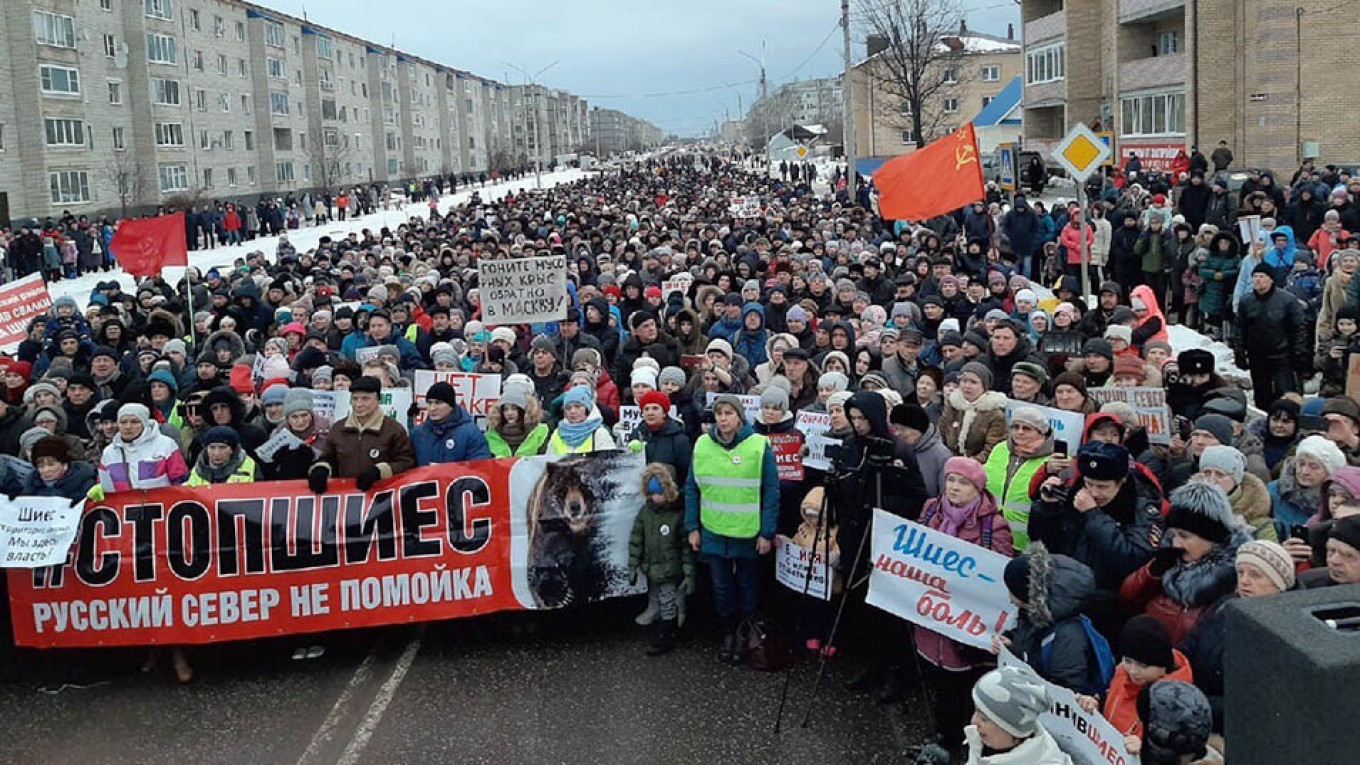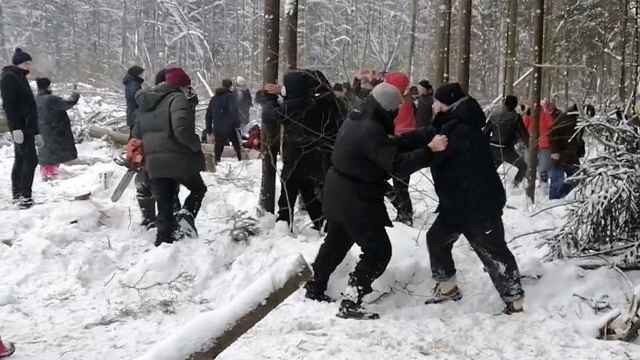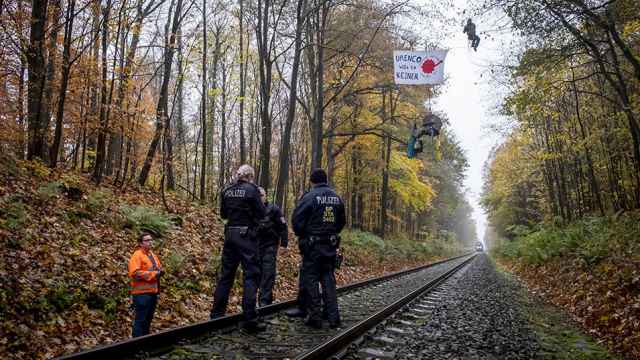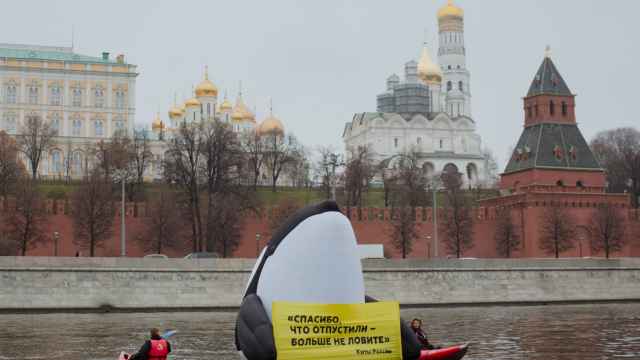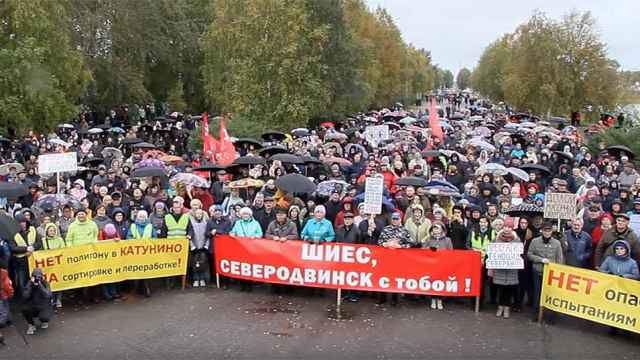Thousands of people protested against plans to build a waste dump in northern Russia as the anti-landfill movement passed its one-year mark last week, activists said Sunday.
Mass protests against plans to ship waste from Moscow to the former village of Shiyes erupted across northwestern Russia on Dec. 2, 2018. The accidental discovery of the landfill project that summer has galvanized the local population and turned the planned $160 million waste dump into a national issue.
Between 5,000 and 10,000 people attended the authorized rally against the Shiyes landfill in the northwestern Russian city of Kotlas on Sunday, the activists said.
“That’s a high figure for a town of 60,000 people,” said the Pomorye Ne Pomoika (Pomorye Is Not a Dump) group on social media.
The group said mass protests against the landfill also took place in the city of Syktyvkar, the Russian republic of Komi’s administrative center, less than 100 kilometers east of Shiyes. Single-person pickets were held in nearby villages.
The Kotlas mayor’s office placed the attendance numbers at fewer than 1,000 people, the independent Novaya Gazeta newspaper reported.
The protesters adopted a resolution calling for construction works to fully stop in Shiyes and ban the import of garbage from other Russian regions, the publication reported.
No arrests or other incidents were reported at any of the rallies.
Residents of Komi and the neighboring Arkhangelsk region have for more than a year opposed plans to ship an estimated 2 million tons of garbage a year from Moscow to Shiyes. Authorities responded to the sustained protest movement by halting the landfill’s construction pending public hearings, but the project has not been shelved.
Independent polling has said that an overwhelming majority of respondents in the Arkhangelsk region opposes the controversial landfill’s construction.
A Message from The Moscow Times:
Dear readers,
We are facing unprecedented challenges. Russia's Prosecutor General's Office has designated The Moscow Times as an "undesirable" organization, criminalizing our work and putting our staff at risk of prosecution. This follows our earlier unjust labeling as a "foreign agent."
These actions are direct attempts to silence independent journalism in Russia. The authorities claim our work "discredits the decisions of the Russian leadership." We see things differently: we strive to provide accurate, unbiased reporting on Russia.
We, the journalists of The Moscow Times, refuse to be silenced. But to continue our work, we need your help.
Your support, no matter how small, makes a world of difference. If you can, please support us monthly starting from just $2. It's quick to set up, and every contribution makes a significant impact.
By supporting The Moscow Times, you're defending open, independent journalism in the face of repression. Thank you for standing with us.
Remind me later.


